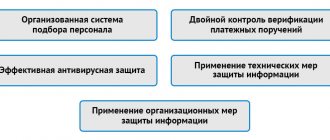1. Theft of objects or documents of special historical, scientific, artistic or cultural value, regardless of the method of theft -
shall be punishable by forced labor for a term of up to five years with or without restriction of liberty for a term of up to one year, or by imprisonment for a term of up to ten years with a fine in the amount of up to five hundred thousand rubles or in the amount of the wages or other income of the convicted person for a period of up to three years, or without it and with or without restriction of freedom for up to one year.
2. The same act:
a) committed by a group of persons by prior conspiracy or by an organized group;
b) has become invalid. — Federal Law of December 8, 2003 N 162-FZ;
c) resulting in the destruction, damage or destruction of objects or documents specified in part one of this article -
shall be punishable by imprisonment for a term of up to fifteen years with or without a fine in the amount of up to five hundred thousand rubles or in the amount of the wages or other income of the convicted person for a period of up to three years and with or without restriction of freedom for a term of up to two years.
- Article 163. Extortion
- Article 165. Causing property damage by deception or abuse of trust
Commentary to Art. 164 of the Criminal Code of the Russian Federation
Theft of items of special value is a type of theft. Objective and subjective signs of theft are disclosed in the commentary to Art. 158 of the Criminal Code of the Russian Federation, forms of theft - in the commentary to Art. Art. 158 - 162 of the Criminal Code of the Russian Federation.
Theft of items of special value is included in a separate article of the Criminal Code of the Russian Federation (Article 164). To qualify an act under this article, the special value must not be property (calculated in money), but cultural (historical, scientific, artistic or other cultural) value. The bearer of this value can be not only things in the strict sense of the word, but also other objects and documents, including those that do not have a market price (for example, documents of scientific value).
Currently, there are no strictly defined rules that would allow one or another item to be classified as being of particular value. Special value must be understood as an evaluative attribute. The special historical, scientific, artistic or cultural value of stolen objects or documents (Article 164 of the Criminal Code of the Russian Federation) (regardless of the method of theft) is determined on the basis of an expert opinion, taking into account not only their value in monetary terms, but also their significance for history, science, art or culture. Order of the Ministry of Culture of the Russian Federation dated August 7, 2001 N 844 approved the List of cultural property subject to the Law of the Russian Federation dated April 15, 1993 N 4804-1 “On the export and import of cultural property”, the export of which is carried out on the basis of certificates of right export of cultural property from the territory of the Russian Federation. It should be borne in mind that not all items indicated in this List can be considered as having special value in the sense of Art. 164 of the Criminal Code of the Russian Federation. For example, the specified List includes any printed publications and other items created more than fifty years ago. The cultural value of these items is undeniable, but it cannot always be recognized as special.
The criminal must also be aware of the special value of the stolen items. Otherwise, the act should be qualified under Art. Art. 158, 159, 160, 161 or 162 of the Criminal Code of the Russian Federation.
The general subject of the crime is a sane person who has reached the age of sixteen.
Qualified types of theft of items of special value:
1) their theft committed by a group of persons by prior conspiracy or by an organized group (clause “a”, part 2 of article 164 of the Criminal Code of the Russian Federation);
2) resulting in the destruction, damage or destruction of objects or documents of special value (clause “c” of Part 2 of Article 164 of the Criminal Code of the Russian Federation).
A group of persons by prior conspiracy and an organized group when stealing items of special value should be understood in the same way as when qualifying other types of theft.
To impute clause “c” of Part 2 of Art. 164 of the Criminal Code of the Russian Federation requires a causal connection between theft and destruction, damage or destruction of valuable items. Guilt in relation to these consequences can be expressed both in the form of intent (for example, if the offender damages a picture by cutting it out of the frame) and in the form of negligence (for example, if the harm is caused as a result of careless or frivolous handling of a stolen valuable item).
The question of the end of robbery aimed at stealing items of special value remains debatable. With a literal interpretation of the law, one can come to the conclusion that determining the moment of the end of the theft provided for in Art. 164 of the Criminal Code of the Russian Federation, does not depend on the form of theft. However, in relation to a similar situation related to the theft of weapons, the Supreme Court of the Russian Federation gave a broad interpretation of the law: “The theft... of weapons... by robbery... should be considered completed from the moment of the attack... combined with violence dangerous to the life and health of the victim, or with the threat of use such violence” (clause 16 of the Resolution of the Plenum of the Supreme Court of March 12, 2002 No. 5 “On judicial practice in cases of theft, extortion and illegal trafficking of weapons, ammunition, explosives and explosive devices”). This clarification must also be taken into account when qualifying crimes under Art. 164 of the Criminal Code of the Russian Federation.
Another controversial issue is related to the qualification of robbery aimed at stealing items of special value, committed in the presence of special qualifying features specified in Art. 162 of the Criminal Code of the Russian Federation. The problem is that qualified types of robbery under the same factual circumstances entail a more severe punishment than the punishment provided for in Art. 164 of the Criminal Code of the Russian Federation. There is competition between criminal law norms. There is an opinion that this is a competition between a general and a special norm, and the special norm is provided for in Art. 164 of the Criminal Code of the Russian Federation, which should be applied in such cases. However, this opinion, from our point of view, is not based on the law and does not agree with common sense. The law considers the theft of items of special value as a more dangerous crime than the theft of other items. Essentially theft under Art. 164 of the Criminal Code of the Russian Federation is a qualified type of theft, although it is included in a separate article for reasons of legal technique. Therefore, in this situation, there is not competition between general and special rules, but competition between special rules with aggravating circumstances. As B.A. rightly noted. Kurinov, “when special norms with aggravating circumstances compete, priority is given to norms with the most aggravating circumstances,” i.e. a rule providing for a more severe sanction must be applied. There is an opinion that in such situations what has been done must be classified according to the totality of crimes. It seems that it is not entirely consistent with the principle of non bis in idem. Human freedom is too high a price to pay for the flaws of legal technology.
———————————
Kurinov B.A. Scientific basis for the classification of crimes. M., 1984. P. 179.
Criminal law course. Volume 3. Special part / Ed. G.N. Borzenkova, V.S. Komissarova. M., 2002. P. 461.
A special issue is the possibility of qualification under Art. 164 of the Criminal Code of the Russian Federation extortion of items of special value. It should be noted that in the law Art. 164 of the Criminal Code of the Russian Federation is placed after Art. 163 of the Criminal Code of the Russian Federation, which provides for liability for extortion. As the only possible explanation for this structure of the law, it can be assumed that the will of the legislator was aimed at qualifying the extortion of items of special value precisely under Art. 164 of the Criminal Code of the Russian Federation. It should also be noted the transformation of the consolidation of the rules on theft in the law. In the current version of the notes to Art. 158 of the Criminal Code of the Russian Federation no longer contains a list of forms of theft. Moreover, in most cases, extortion of items of special value is fully covered by the concept of theft given in the law. A literal interpretation of the law leads to the following decision: extortion of items of special value can be qualified under Art. 164 of the Criminal Code of the Russian Federation, provided that the act is fully covered by the concept of theft given in the law. This should not be taken to mean that extortion can be considered a form of theft. In general, this issue remains controversial.
———————————
Right there.
Distinction from related crimes
Theft of valuable items can be committed in different forms:
- theft;
- fraudulent activities;
- misappropriation or embezzlement;
- robbery;
- robbery.
The form of theft does not affect the size and type of punishment, but it does affect the identification of the moment of completion of the offense, for example, with theft, the moment of the end of the offense occurs at the moment when the item is seized and the attacker has the opportunity to use the stolen item.
If things of special value were obtained through extortion, then such a crime is considered under Article 163 of the Criminal Code of the Russian Federation, since extortion is not theft.
Extortion is aimed not only at property relations, but also at the health of the victim, even to the point of murder. Taking possession of a car with driving documents or another type of vehicle without the purpose of stealing, that is, when the vehicle is stolen, is punishable under Article 166 of the Criminal Code of the Russian Federation.
In the event that the destruction of objects was committed through negligence, then liability arises under Article 168 of the Criminal Code of the Russian Federation. The type of punishment is assigned by the court.
Judicial practice under Article 164 of the Criminal Code of the Russian Federation
Appeal ruling of the Judicial Collegium for Criminal Cases of the Supreme Court of the Russian Federation dated May 30, 2018 N 25-APU18-2SP
- under paragraph “c” of Part 4 of Art. 164 of the Criminal Code of the Russian Federation for 11 years in prison. Based on Part 3 of Art. of the Criminal Code of the Russian Federation for the totality of crimes by partial addition of the sentences imposed on A.M. Khadzhaev. sentenced to 16 years in prison with restriction of freedom for a period of 1 year 6 months.
Appeal ruling of the Judicial Collegium for Criminal Cases of the Supreme Court of the Russian Federation dated October 02, 2018 N 5-APU18-52
By a resolution of the Deputy Prosecutor General of the Russian Federation dated June 18, 2021, the request of the Prosecutor General's Office of the Republic of Uzbekistan for the extradition of F.N. Bobokulov was satisfied. to bring to criminal liability under paragraph “c” of Part 4 of Art. 164, paragraphs “a”, “c”, part 4 of Art. 164 of the Criminal Code of the Republic of Uzbekistan.
Appeal ruling of the Judicial Collegium for Criminal Cases of the Supreme Court of the Russian Federation dated October 3, 2019 N 46-APU19-10
By a resolution of the Deputy Prosecutor General of the Russian Federation dated April 23, 2021, the request of the Prosecutor General’s Office of the Republic of Uzbekistan for the extradition of S.N. Karabaev was satisfied. law enforcement agencies of the Republic of Uzbekistan to bring him to criminal responsibility for committing crimes provided for in clauses “i”, “o”, “p”, part 2 of Art. (premeditated murder), paragraph “g”, part 3 of Art. 164 (robbery) of the Criminal Code of the Republic of Uzbekistan.
Appeal ruling of the Judicial Collegium for Criminal Cases of the Supreme Court of the Russian Federation dated June 20, 2018 N 18-APU18-8
By the resolution of the Deputy Prosecutor General of the Russian Federation dated March 19, 2021, the request of the Prosecutor General’s Office of the Republic of Uzbekistan for the extradition of G.S. Polevoy was satisfied. to bring to criminal liability for robbery with unlawful entry into a home under paragraph “c” of Part 3 of Art. 164 of the Criminal Code of the Republic of Uzbekistan. The same resolution refused to extradite G.S. Polevoy. to bring to criminal liability for theft under paragraph “c” of Part 2 of Art. 169 of the Criminal Code of the Republic of Uzbekistan due to the expiration of the statute of limitations for criminal prosecution.
Appeal ruling of the Judicial Collegium for Criminal Cases of the Supreme Court of the Russian Federation dated September 28, 2017 N 44-APU17-15
sentenced to imprisonment under Art. 162 part 2 of the Criminal Code of the Russian Federation for 7 years with a fine of 60,000 rubles, with restriction of freedom for 6 months; according to Art. 164 part 2 paragraph “a” of the Criminal Code of the Russian Federation for 6 years with a fine of 60,000 rubles, with restriction of freedom for 6 months; according to Art. 105 part 2 paragraph “g” of the Criminal Code of the Russian Federation for 15 years with restriction of freedom for 1 year.
Appeal ruling of the Judicial Collegium for Criminal Cases of the Supreme Court of the Russian Federation dated October 31, 2017 N 5-APU17-96
Kariabdiev D.S. acquitted under Art. 164 part 4 paragraphs “a”, “c” of the Criminal Code of the Russian Federation due to non-involvement in the commission of this crime. Having heard the report of judge A.S. Kolyshnitsyn, explanations of the convicted K.F. Usmonov, A.M. Azizov, Sh.A. Askarov, B.R. Dzhangibekzoda, B.D. Etmishev, lawyers R.S. Teuvazheva, A. Ursola L.L., Poddubny S.V., Shapovalova N.Yu., Misailidi O.S., Prigodina V.V., who supported the arguments of the appeals, objections of the prosecutor Samoilov I.V., who believed the verdict to be left unchanged, Judicial Collegium
Appeal ruling of the Judicial Collegium for Criminal Cases of the Supreme Court of the Russian Federation dated December 18, 2018 N 9-APU18-19
according to clause “a”, part 2 of art. 164 of the Criminal Code of the Russian Federation to 6 years in prison with a fine of 20,000 rubles, with restriction of freedom for 6 months; according to clause “b”, part 4, art. 158 of the Criminal Code of the Russian Federation to 3 years in prison with a fine of 5,000 rubles, with restriction of freedom for 9 months;
Appeal ruling of the Judicial Collegium for Criminal Cases of the Supreme Court of the Russian Federation dated 04.04.2019 N 33-APU19-10
June 29, 2007 under clauses “a”, “d”, part 2 of art. 164 of the Criminal Code of the Russian Federation using Art. of the Criminal Code of the Russian Federation to 6 years 10 months of imprisonment, released on November 20, 2013 after serving the sentence; April 2, 2021 under clauses “a”, “b”, “c”, part 2 of art. 158, paragraph “a”, part 3, art. 158, paragraph “a”, part 3, art. 158, paragraph “a”, part 3, art. 158, paragraph “b”, part 3, art. 158, part 1 art. 161, part 2 art. 228 of the Criminal Code of the Russian Federation to 4 years in prison
Cassation ruling of the Judicial Collegium for Criminal Cases of the Supreme Court of the Russian Federation dated January 28, 2021 in case No. 9-UD20-32sp-A4
according to clause “a”, part 2 of art. 164 of the Criminal Code of the Russian Federation to 11 years of imprisonment with restriction of freedom for a period of 1 year; according to clause “a”, part 3, art. 161 of the Criminal Code of the Russian Federation (in relation to ...) to 8 years of imprisonment with restriction of freedom for a period of 1 year;








